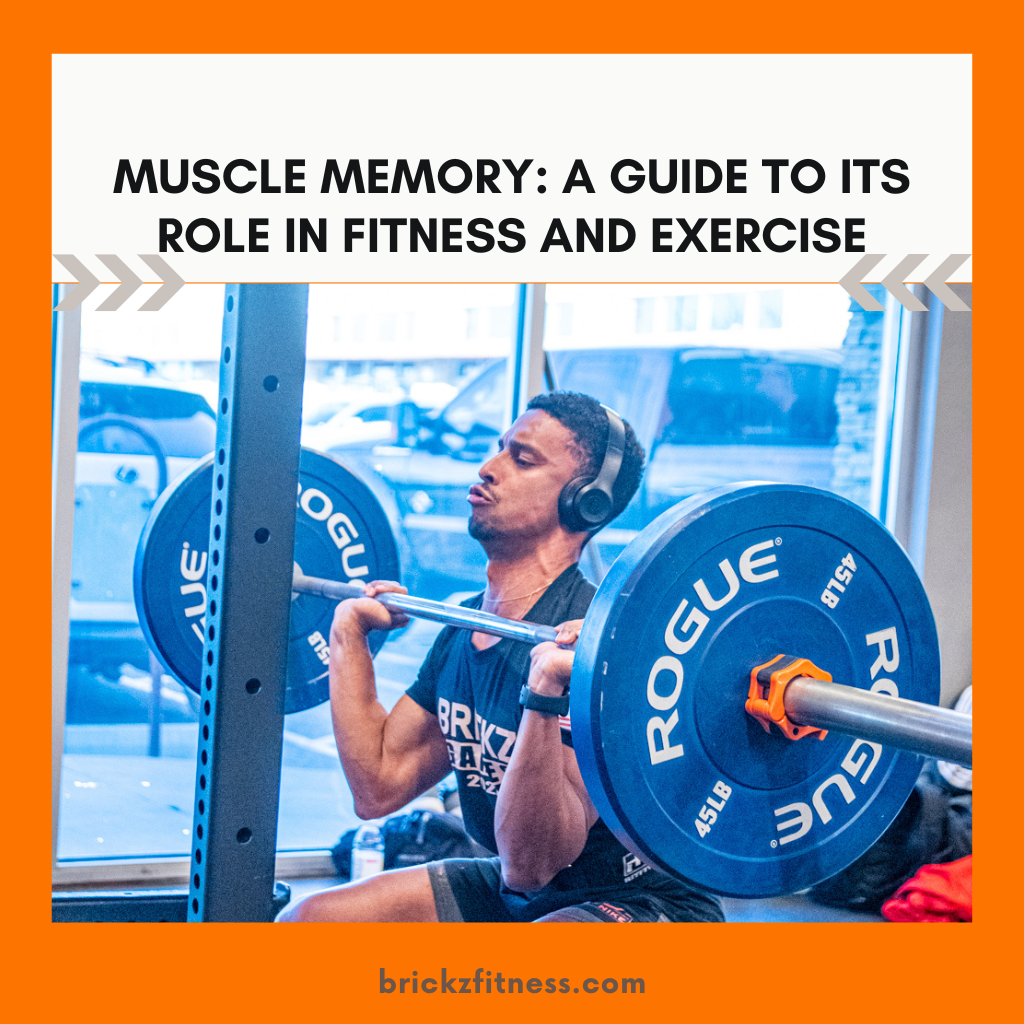The Phenomenon of
Muscle Memory:
A Guide to its Role in Fitness and Exercise

The phrase “muscle memory” gets tossed around pretty often. But what does it really mean?
In this blog, we'll explore what muscle actually memory is, how it works, and its profound implications for fitness and exercise enthusiasts.
Understanding Muscle Memory
Muscle memory refers to the ability of our muscles to "remember" previous strength and size, even after a period of inactivity. Contrary to what the term might suggest, it's not the muscles that possess memory but rather the nervous system and the cellular adaptations within the muscle fibers.
How Muscle Memory Works
- Neural Adaptations
Regular exercise makes the nervous system more efficient at recruiting muscle fibers and coordinating movements. This neural adaptation is a crucial component of muscle memory. Even during periods of reduced activity, the neural pathways forged through consistent training remain intact. When you resume training, the nervous system can quickly re-establish efficient communication with the muscles.
- Satellite Cells and Myonuclei
Muscle cells, or fibers, have satellite cells that play a crucial role in muscle repair and growth. During intense training, these satellite cells contribute additional nuclei to the muscle fibers. The presence of more nuclei enhances the muscle's capacity for protein synthesis. Even if muscle mass decreases due to detraining, the surplus nuclei persist. When you resume training, this surplus accelerates the rebuilding process, leading to quicker gains in size and strength.
Implications for Fitness and Exercise
- Faster Regains After a Break
One of the most evident benefits of muscle memory is the ability to regain lost strength and muscle mass more quickly after a hiatus from exercise. This can be reassuring for individuals who, for various reasons, experience interruptions in their regular workout routines.
- Long-Term Fitness
Understanding muscle memory highlights the importance of consistency in a fitness journey. Even if life circumstances lead to temporary breaks from training, the positive adaptations achieved through prior workouts endure. This underscores the value of building a sustainable, long-term approach to fitness.
- Varied Training Benefits
Muscle memory isn't limited to specific exercises. The adaptations extend across various movements, allowing individuals to switch up their routines without sacrificing the benefits of previous training.
- Motivation and Persistence
Knowledge of muscle memory can serve as a motivational tool. Recognizing that your body can bounce back and exceed previous achievements can instill a sense of persistence and dedication to your fitness goals.
Muscle memory is a remarkable aspect of our body's response to exercise, emphasizing the importance of consistent training for long-term fitness success.
Whether returning to the gym after a break or adjusting your workout routine, understanding the mechanisms behind muscle memory can empower you to make informed decisions about your fitness journey. Embrace the resilience of your muscles, and let muscle memory guide your path to strength, vitality, and lasting health.
